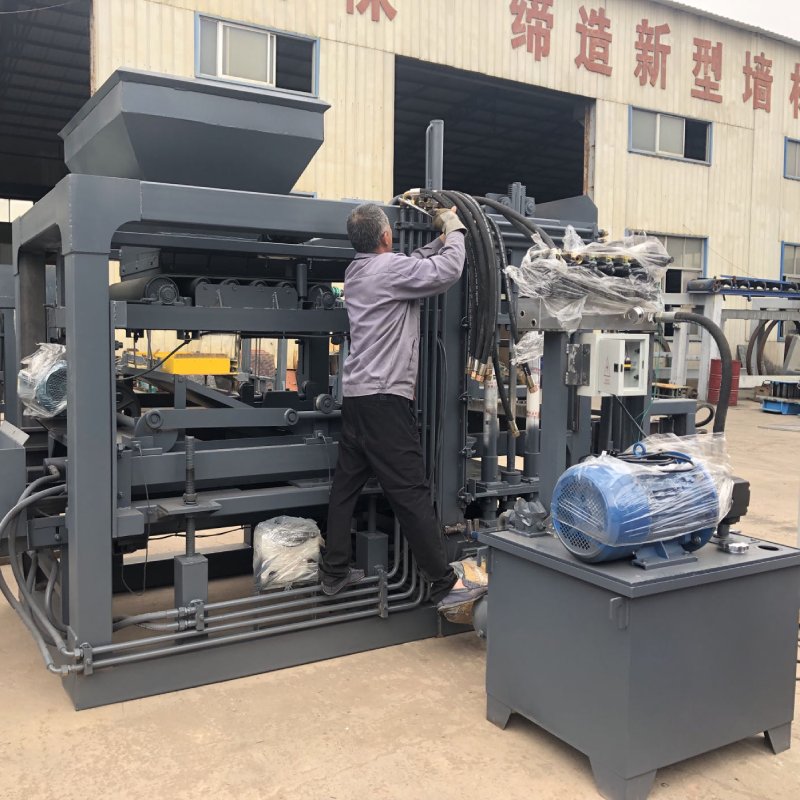
Image source Aiwei Block Machine
Precision and Quality: Advancements in Brick and Block Manufacturing Technology
Introduction
Bricks and blocks are the unsung heroes of construction, providing the structural integrity, insulation, and aesthetic appeal necessary for buildings of all types and sizes. Historically, their production relied on labor-intensive methods that were slow, inconsistent, and often lacked precision. However, in today’s rapidly advancing construction landscape, manufacturing technology has ushered in an era where precision and quality are paramount.
The Traditional Challenges in Brick and Block Production
Manual Labor and Inefficiency
Traditional brick and block production methods heavily relied on manual labor. Workers molded, shaped, and stacked bricks and blocks, resulting in slow and inefficient processes. The inconsistency in craftsmanship led to variations in product quality.
Quality Control
Ensuring consistent quality in bricks and blocks was a persistent challenge with traditional production methods. Variations in raw materials, human error, and limited quality control measures contributed to the problem.
Environmental Impact
Traditional brick and block production methods were not environmentally friendly. High energy consumption, resource depletion, and waste generation were common issues, resulting in a negative environmental footprint.
The Advancements in Brick and Block Manufacturing Technology
Automated Machinery
The introduction of automated machinery revolutionized brick and block manufacturing. These machines replaced much of the manual labor, resulting in improved efficiency and precision. Automation allowed for faster production rates, meeting the demands of large-scale construction projects.
Hydraulic Presses
Hydraulic presses became a cornerstone of manufacturing technology in brick and block production. These machines exert precise pressure to mold bricks and blocks to exact specifications. The level of precision they offer ensures consistency in size and shape, a crucial factor in construction. Hydraulic presses can produce a wide range of products, from standard bricks to specialized blocks for specific applications.
Modular Machinery
Manufacturing technology also introduced modular machinery that offers greater flexibility. Manufacturers can configure these machines to produce various types of bricks and blocks by simply changing molds and settings. This adaptability reduces the need for multiple specialized machines, streamlining production and saving costs.
Benefits of Advancements in Brick and Block Manufacturing Technology
Enhanced Efficiency
One of the most significant benefits of advancements in manufacturing technology is enhanced efficiency. Automation, precision controls, and modular design reduce manual labor requirements and improve resource utilization. As a result, production rates increase, and operational costs decrease.
Quality Control
Advancements in manufacturing technology ensure consistent product quality. Precision controls, automated testing systems, and quality assurance processes guarantee that each brick or block meets strict quality standards. This consistency is crucial for structural integrity and architectural precision in construction.
Versatility
Modular machinery offers versatility, enabling the production of a wide variety of bricks and blocks. Manufacturers can meet the specific requirements of different construction projects without investing in multiple machines.
Speedy Production
Manufacturing technology has significantly increased the speed of brick and block production. Automated machines can produce bricks and blocks at a significantly faster rate than manual labor or traditional machinery. This speed is crucial for meeting project deadlines, reducing construction timelines, and ensuring timely project completion.
Challenges and Considerations
Initial Investment
While the benefits of advancements in manufacturing technology are significant, there is an initial investment required to acquire and set up these technologies. Manufacturers and construction companies must carefully evaluate the upfront costs against the long-term gains.
Maintenance and Training
Operating and maintaining advanced machinery may require specialized training for personnel. Companies must invest in employee training to ensure safe and efficient operation. Additionally, routine maintenance and occasional repairs are essential to keep these machines operating at peak performance.
Sustainability
While advancements in manufacturing technology optimize efficiency and quality, there are sustainability concerns to consider. Energy consumption, resource utilization, and waste generation should be monitored and minimized to reduce the environmental impact of brick and block production.
Integration with Existing Processes
Integrating advanced machinery into existing brick and block production processes can be challenging. Companies must carefully plan and adapt their workflows to incorporate these technologies seamlessly. This may require changes to plant layouts and production schedules.
The Future of Brick and Block Manufacturing Technology
The future of brick and block manufacturing technology holds the promise of continued advancements. As the construction industry evolves and embraces new materials and methods, manufacturers are likely to invest more in research and development. Artificial intelligence (AI), machine learning, and sustainable practices will play a significant role in shaping the future of brick and block production.
Conclusion
Advancements in brick and block manufacturing technology are reshaping the construction industry, emphasizing precision and quality as never before. These innovations are not just improving the manufacturing process; they are redefining the way we build. As the world recognizes the importance of faster, more efficient, and sustainable construction practices, the adoption of advanced machinery becomes imperative. The benefits of enhanced efficiency, quality control, versatility, and speedy production make manufacturing technology a vital component of the industry’s future. By embracing these technologies, the construction sector can build with greater precision, consistency, and quality, creating structures that stand the test of time. Brick by brick and block by block, manufacturing technology is paving the way for a brighter, more efficient, and technologically advanced future for construction.
